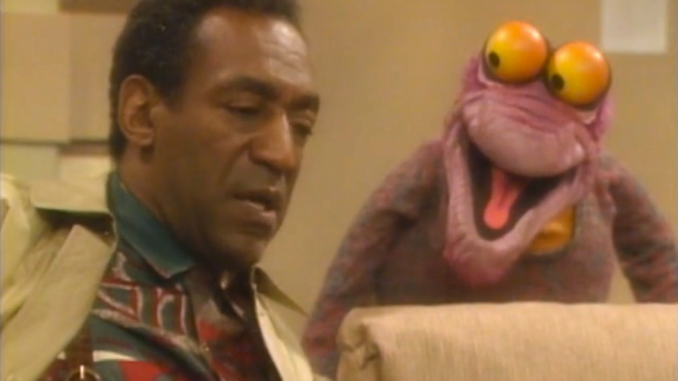
When The Cosby Show first aired in 1984, it not only redefined American television but also reshaped how viewers perceived the portrayal of African-American families. In an era when television was dominated by sitcoms featuring predominantly white families, the arrival of the Huxtables was a game-changer. This groundbreaking series went beyond just being a television show—it was a cultural movement that provided both entertainment and a mirror to societal norms, reflecting the values and aspirations of a diverse audience. From its diverse representation to its insightful portrayal of family dynamics, The Cosby Show has left an indelible mark on TV history, and its legacy continues to resonate today.
The Breaking of Stereotypes
Before the Huxtables, television’s portrayal of African-American families was often limited to a narrow range of stereotypes. African-American characters were either relegated to supporting roles, comedic relief, or portrayed in struggling, poverty-stricken environments. Shows like Good Times (1974-1979) and Sanford and Son (1972-1977) depicted working-class or lower-income African-American families, offering a stark contrast to the affluent and successful Huxtable family.
The Cosby Show broke away from these stereotypes by featuring the Huxtables as an educated, well-off, and loving family. Cliff Huxtable (Bill Cosby) was a respected doctor, while his wife, Clair (Phylicia Rashad), was a successful lawyer. Their home was one of comfort, not struggle, challenging the prevailing depiction of African-American life on television. This positive representation provided African-American viewers with a sense of pride and showed them that success, intelligence, and love could be achieved regardless of race.
The show’s groundbreaking portrayal of an upper-middle-class African-American family became a symbol of possibility and a reminder that the American dream was accessible to everyone, no matter their background.
Cultural Relevance
What set The Cosby Show apart was its ability to tackle serious social issues without losing its comedic charm. From discussions on racism and prejudice to family values, it managed to blend humor with meaningful insights into everyday life. Episodes that dealt with challenging topics such as teen pregnancy, academic pressure, and generational divides were crafted in a way that was both entertaining and thought-provoking.
One of the key episodes, “The Divorce,” tackled the complicated dynamics of divorce and its impact on children. While most sitcoms of the time would have avoided such weighty subjects, The Cosby Show showed that difficult topics could be addressed without sacrificing the show’s warmth and humor. This balance between levity and seriousness became a hallmark of the show and demonstrated that television could educate and entertain simultaneously.
As the years went by, the Huxtables became an idealized representation of what a family could be. Parents who communicated openly with their children, who set clear boundaries but still showed affection, became the gold standard for family life. Their strong moral compass was a beacon for many viewers, showing that love, respect, and education were the cornerstones of family life.
The Legacy
Perhaps the most lasting legacy of The Cosby Show is its influence on later TV programming. The success of the show paved the way for other sitcoms featuring African-American families, such as A Different World (1987), The Fresh Prince of Bel-Air (1990), and Black-ish (2014). The show demonstrated that audiences were ready for complex characters and diverse families, and Hollywood took note.
In addition to its influence on future programming, the show’s impact on pop culture cannot be overstated. The Huxtable family became a symbol of success and stability. The catchphrases, the fashions, and the iconic theme song all became deeply embedded in American pop culture. People still remember Cliff’s witty one-liners, Clair’s elegance, and the family’s strong, relatable bond.
Even decades after its initial run, The Cosby Show continues to inspire new generations of viewers. The show’s combination of laughter, warmth, and life lessons made it universally appealing, transcending race and ethnicity. It’s a show that represents the power of positive role models in the media, showcasing that TV doesn’t have to be sensational to be impactful.
Conclusion
The Cosby Show was more than just a sitcom; it was a cultural revolution. By offering a fresh perspective on African-American families and exploring social issues with humor and heart, the show left a profound impact on American television. Its ability to portray a family dynamic that was both aspirational and relatable changed the way people viewed African-American life on screen. As we look back on its legacy, it’s clear that The Cosby Show will always hold a place in TV history, reminding us of the power of family, humor, and representation in the media.
